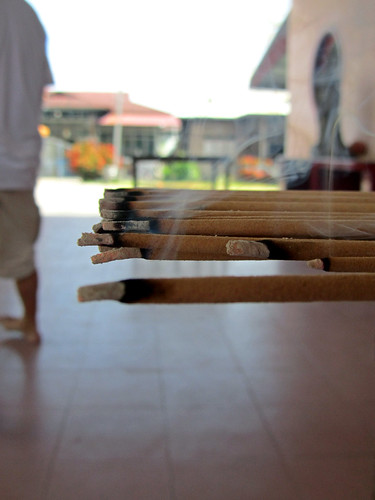I know, it’s getting confusing. First there’s the Chinese New Year, which some also dubbed Lunar New Year and Spring Festival, which falls on the same day as the Vietnamese New Year (“Tet”). Then, separately, the ethnic group known as the Hokkiens (or Fujians) celebrate their particular new year on the 9th day of Chinese New Year in a ceremony that’s known as Bai Ti Gong. That’s literally “Praying to the Heavenly God”, and it occurs on his birthday.


My family mostly identifies ourselves as Hokkiens, following matrilineal practice passed down by my (paternal) great-grandmother. Funny that, considering my great-grandfather was actually Henghua yet pretty much nobody in the family speaks this dialect at all following the passing of my grandfather. Notwithstanding, both ethnic groups originated from the same region in China. I suspect there’s a lot more to know about family history if I am to really dig into it, but to keep things simple, I’m first and foremost a Hokkien, with a touch of Peranakan from Penang.
Continue reading »
Much has been said about the importance of family reunion dinner during Chinese New Year. However, within certain ancestor-worship practicing family, the reunion of the departed is equally important. We were taught to remember our ancestors, to invite them home on special occasions, and to share festivals with their spirits.


This Chinese New Year also noticeably marks my first ancestor prayer session where my grandfather now sat among the departed, while everyone else had had time to get used to it in the past couple of years. In the past, he would be the one cooking up a storm in the kitchen and prepared the reunion meal. I kept expecting to see him by the large wok, tipping in all kind of ingredients and served up dish after dish in quick succession.
Continue reading »

As a child, I was told, that whenever I burn some joss sticks, the smoke of the incense would carry my wishes to heaven. Invariably, the wishes run along the lines of good health for everyone in my family and success for many endeavours that we undertake. To pray specifically for wealth is not something I would include in my silent chant.
I guess that’s part of the difference between the practice of Buddhism in Sri Lanka and in Malaysia that I have observed. In Sri Lanka, the offerings are typically of flowers, food and oil, whereas in Malaysia, incense burning is a lot more prominent. Buddhism in Malaysia is also less pragmatic and perhaps more inclusive, shaped by a mélange of various fractions of Buddhism as well as Taoism and Confucianism, each not thought to be mutually exclusive. Fascinating things, culture and religion are. If only I have more free time, I wouldn’t mind getting to know more in details.

















